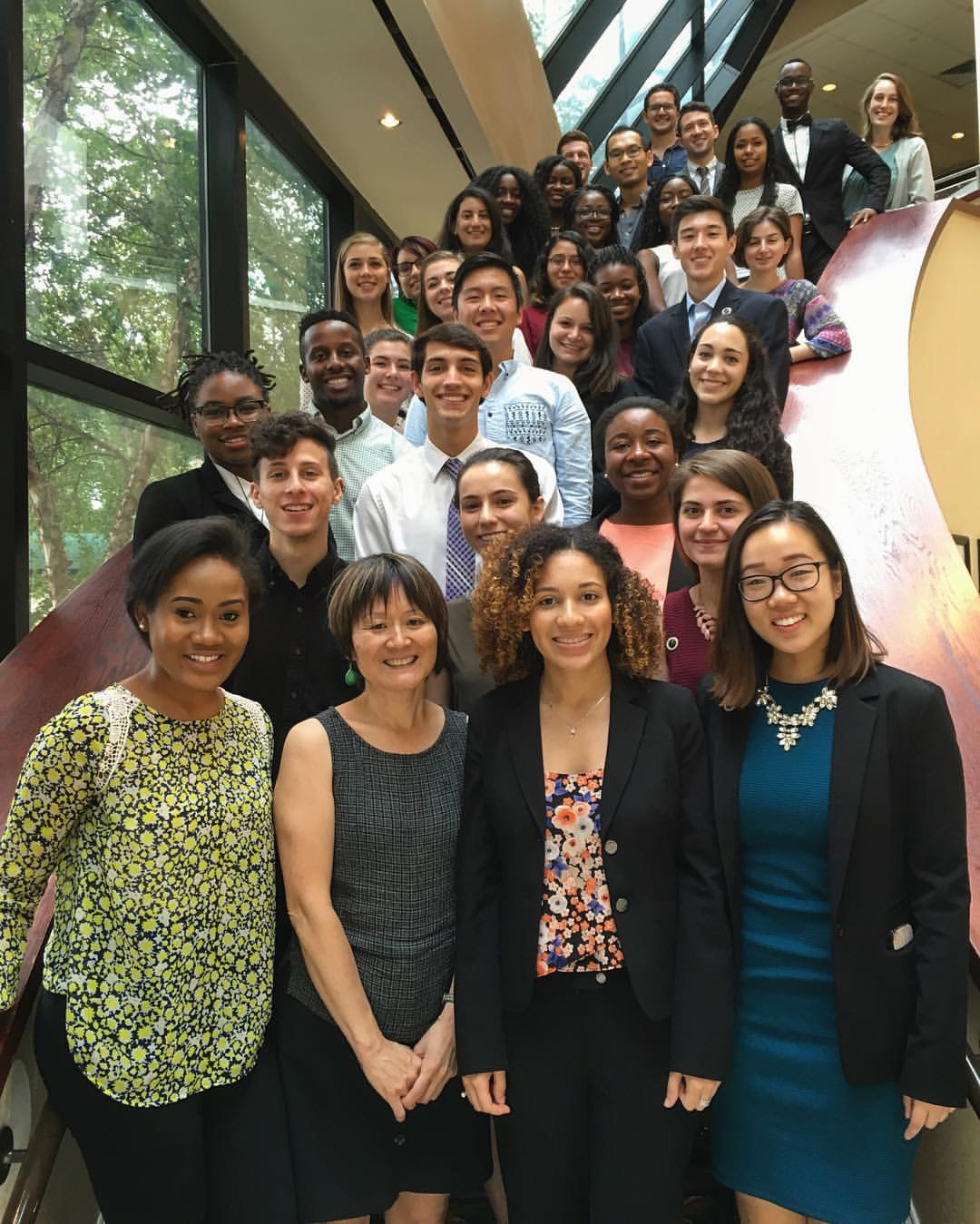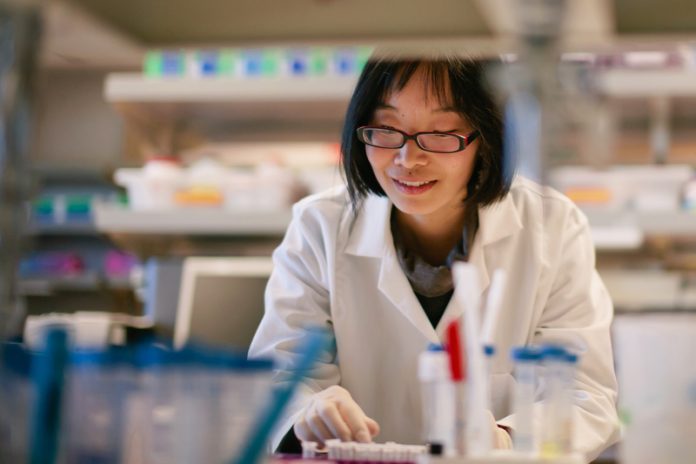The NYU Sackler Institute of Graduate Biomedical Sciences aims to train the next generation of scientists to make breakthroughs and advances in society at large, explains Naoko Tanese
Becoming an accomplished researcher requires an inquisitive mind and perseverance. It calls for hands-on research experience and active mentorship. Sackler students receive rigorous training to become independent scientists. We also instil in them a strong sense of social and ethical responsibility through interactions with our diverse research community.
PhD programme
Students matriculating at NYU Sackler Institute of Graduate Biomedical Sciences begin their training in an Open Program. While some students enter graduate school with a speciality in mind, in the Open Program students are encouraged to explore multiple fields. First-years wait to select a training discipline until they have taken several courses, completed two or three laboratory rotations, and selected a faculty mentor for their PhD thesis work. They have a full year to make final decisions.
We recently expanded the scope of our program to include new training tracks in Biomaterials Science, Biostatistics, and Epidemiology, in addition to all of the existing traditional disciplines in biomedical sciences. As we recruit students interested in the new tracks, we are faced with balancing the unique background of each student with the spirit of the Open Program. How can the curriculum of an Open Program satisfy students with varying interests and backgrounds?
To address this challenge all incoming students are required to take the course Introduction to Research, which starts immediately after Orientation with an immersive lab experience called Research Adventure. The Introduction to Research course is intended to not only help incoming students begin graduate school with the same basic knowledge, but also to provide them with a sense of community.
The Research Adventure is an intensive, week-long, hands-on research experience, where students working in a team carry out a structured project in a faculty’s lab on a topic different from their previous research. This exposes them to new possibilities that perhaps they may not have considered. We continue to evaluate best practices to keep the spirit of the Open Program alive while accommodating the different interests and backgrounds of our matriculating students.
Career
In higher education, there is an increasing trend for PhD students to pursue alternative careers (non-academic positions). For this reason, we strive to prepare them for any career. We emphasise how PhD training teaches students to be critical thinkers, problem solvers, productive team members, collaborators, independent workers, and effective leaders. These are qualities useful to any career path.
NYU’s centre for career development offers services such as resume and cover letter preparation as well as networking and interviewing practice sessions. Students participate in many job and internship fairs. We also invite alumni back to give career talks and meet with students to discuss their experiences.
Our students also take advantage of a variety of workshops and courses offered by the postdoctoral affairs office. To improve their career training, they actively engage in career planning while assessing their personal values and translating them to individual goals. They are introduced to all the diverse career opportunities outside of academic research. For those interested in teaching, students learn how to design and implement courses both at the college and post-graduate level. Communication is another skill critical to any career. We host workshops and seminars to help our students with their communication skills, both written and oral, to a variety of audiences.
Inspiring the next generation

The future of our society depends on training the next generation of highly capable scientific workforce. For this reason, we place a great deal of effort in mentoring young people interested in pursuing careers in science. We are increasingly wary of losing students’ interests in STEM – Science, Technology, Engineering, and Mathematics. We are also concerned that not enough young people from diverse backgrounds are entering the STEM field. The current makeup of scientists in biomedical fields does not reflect the composition of the US population.
Numerous studies have reported the benefits of a diverse research community in advancing scientific endeavours. We are committed to making this happen by reaching out to students from diverse racial, ethnic, and socioeconomic backgrounds. One mechanism that has been in place at the Sackler Institute is our Summer Undergraduate Research Program (SURP).
Established in 1990, the SURP has been one of the cornerstones of minority recruitment for MD, PhD, and MD/PhD programs. The purpose of SURP is to give students who have the interest in biomedical sciences an opportunity to conduct research at a major medical centre. Over 700 students have participated in this program and >95% of the participants subsequently entered graduate or professional degree programs. We make an effort to provide a supportive community where students from all backgrounds feel at home. This is critical to our mission to promote diversity and inclusion at the Sackler Institute.
In many ways, STEM training needs to start earlier than college. We have been reaching out to students in nearby high schools to introduce them to scientific research. It’s never too early to show them what it’s like to be a grown-up scientist. We have visited local schools to give presentations and met one-on-one with young students. We have invited them to research laboratories to observe scientists at work, and in some cases perform experiments as student interns.
Ambitious and determined students commit to commuting long distances for these hard-to-find opportunities to satisfy their curiosity and challenge themselves to unfamiliar but exciting tasks. Some students never give up looking for a chance to enter research labs. This makes it worthwhile to mentor and see them thrive in a new environment. Scientific discoveries are made by following one’s passion. We are here to inspire young people to find their passion in the biomedical sciences.
Please note: this is a commercial profile
Naoko Tanese, PhD
Associate Dean for Biomedical Sciences
NYU School of Medicine
Tel: +1-212-263-8945











